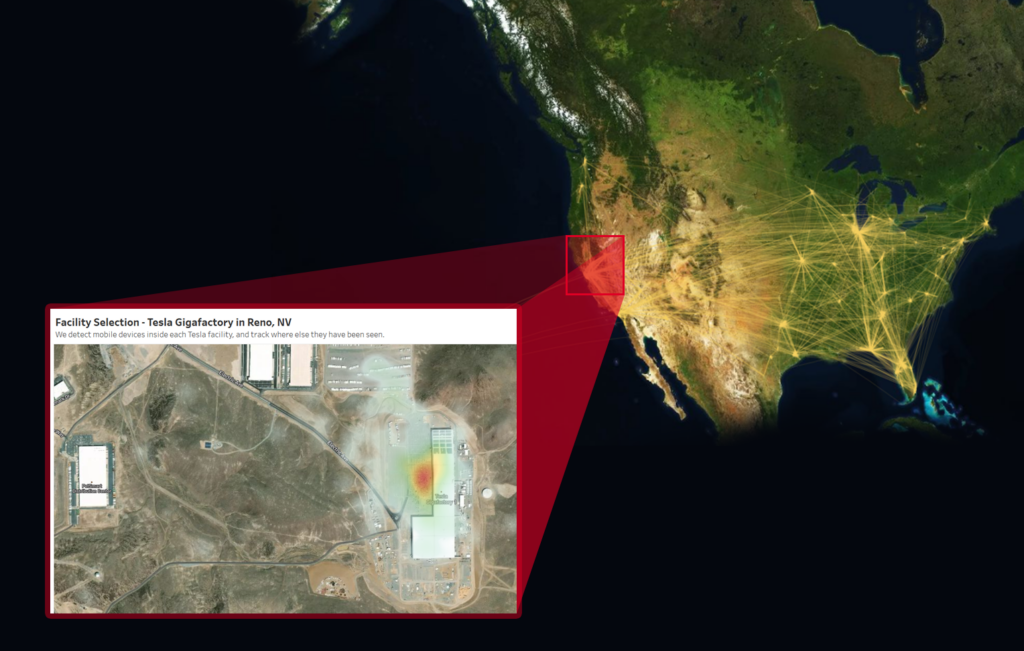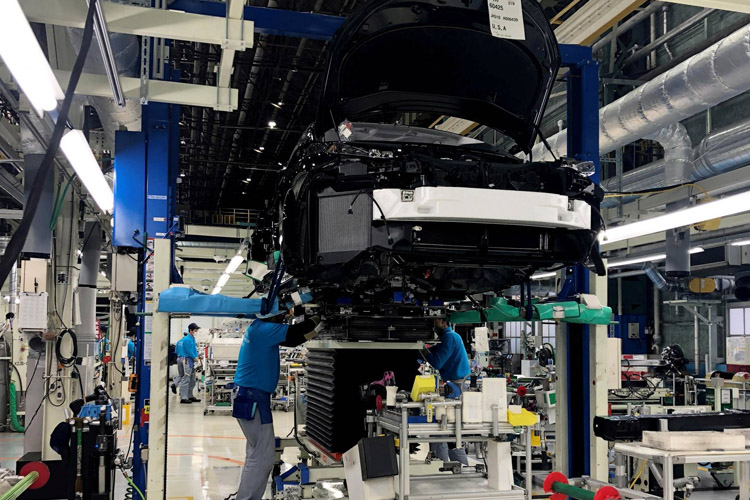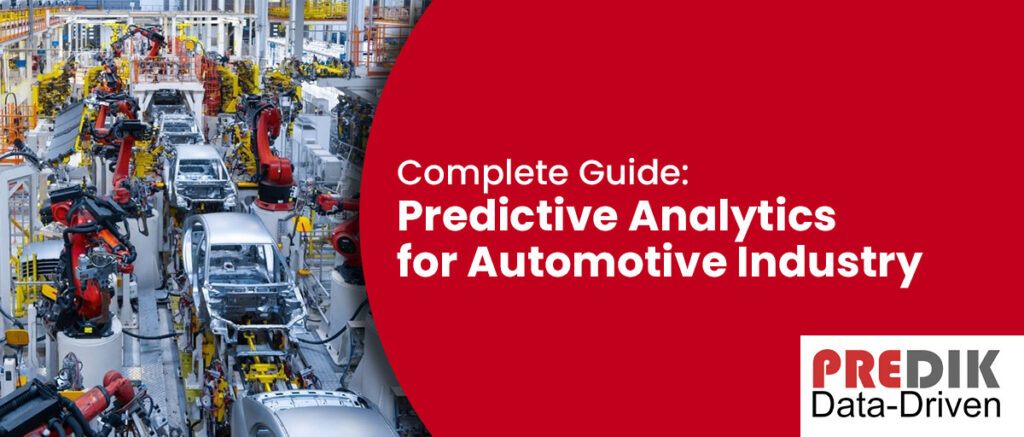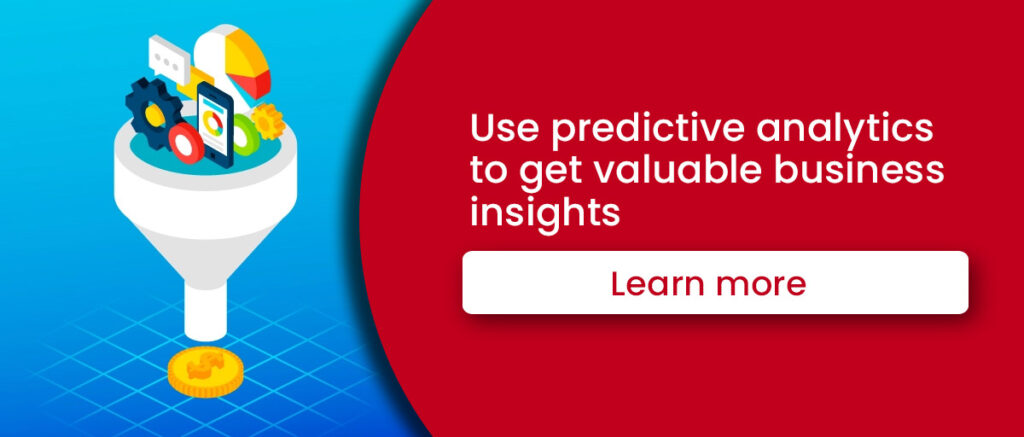The automotive industry is undergoing many changes and challenges, but there are also many exciting opportunities. With technology advancing rapidly, including the development of self-driving cars and changing customer expectations, traditional business ways are being affected. One way to tackle these challenges is by using Big Data and Predictive Analytics.
The importance of having a data-driven approach cannot be overstated in today’s market. Globalization and rapid technological advancements have increased competition, costs, and unpredictable consumer behavior.
The Role of Predictive Analytics in the Automotive Industry
The automotive industry has seen a significant improvement with the help of predictive analytics (PA), especially in the manufacturing aspect. For example, unlike the traditional assembly lines that relied on manual labor, which often caused mistakes and inefficiencies, predictive analytics uses advanced algorithms, alternative data and mining techniques to anticipate any possible issues in the production process ahead of time.
The rise in technology has brought about significant changes not only in production but also in the way data is analyzed. Predictive analytics, which uses Machine Learning and Artificial Intelligence, is now used to interpret complex data sets that affect different aspects of the automotive industry, including vehicle design and supply chain logistics.
Also, with vehicles’ increasing sophistication and connectivity, the potential for predictive analytics to revolutionize sales and usage is enormous. Therefore, predictive analytics is no longer just an additional tool but is now essential to the automotive industry’s evolution.
We also recommend you reading: Using Competitive Intelligence for Automotive Industry
Common Use Cases for Predictive Analytics
Leveraging vast datasets and sophisticated algorithms, companies like Honda, Ford, Tesla, and Volkswagen are revolutionizing traditional processes to optimize operations, enhance product quality, and provide more personalized customer experiences.
Supply Chain Optimization
Car manufacturers use predictive analytics to keep their supply chain efficient and cost-effective. This includes managing inventory levels and planning routes, lowering storage and transportation expenses.
We recommend you reading: How To Use Predictive Analytics For Supply Chain Optimization?
In essence, analytics provides a strong structure for car manufacturers to simplify their operations and make data-based choices that reduce costs and boost efficiency.

Do you know that Tesla shares suppliers with BMW, Honda and Mitsubishi? Learn more about our AI-Competitive Intelligence solution.
Predictive Maintenance
With the help of PA solutions, the industry is moving towards a more proactive approach. The goal is to reduce downtime and extend the lifespan of machinery, which can result in significant economic advantages.
Predictive maintenance relies on Machine Learning algorithms to identify potential equipment failures by analyzing historical and current data for abnormal patterns.
Enhanced Product Quality
One example of a company that uses predictive analytics to improve its quality control processes is Ford Motors. By doing so, they can avoid product defects from reaching consumers and reduce recall costs, ultimately leading to higher customer satisfaction.
Additionally, Machine Learning models that analyze historical defect data can predict possible issues in the current manufacturing cycle, enabling proactive rectification.
Customized Manufacturing
The automotive industry places a strong emphasis on providing personalized experiences to customers. In this case, PA solutions can analyze consumer preferences and use that information to customize production.
This approach is particularly useful in markets where consumer preferences change quickly and vary significantly between regions. By tailoring vehicles to meet each customer’s specific needs, businesses can satisfy their customers and optimize their inventory management.
Market Analysis and Competitor Exploration
Predictive analytics is crucial for identifying market trends and comprehending the competitive landscape. Automakers can predict demand by analyzing factors such as economic trends, competitors’ movements, and consumer patterns.
Marketing and Sales Campaigns
Businesses can now use predictive analytics to identify potential customers and their preferences. This exact form of marketing was only possible after the development of advanced analytics technology.
By gaining a deeper understanding of consumers, car manufacturers and dealerships can create more impactful marketing strategies, resulting in more sales and customer loyalty.
Toyota employs its Social Media Intelligence Center to analyze social media comments that contain specific keywords such as “Lexus,” “decide,” “buy,” and “BMW.” This analysis helps Toyota gain insight into customer opinions on specific vehicles and identify quality issues. This, in turn, allows for more accurate sales predictions.
Using predictive analytics and sentiment analysis based on social media data, Toyota’s sales representatives and dealers can make more informed decisions about allocating their marketing budgets or incentive money.
For example, by segmenting customers who have expressed interest in purchasing a car through social media data, analyzing the frequency of their dealership visits through their Foursquare check-ins, and understanding their dealership experience, Toyota’s sales reps can focus on potential customers who are more likely to be ready to buy. Additionally, analyzing free-form text helps Toyota broaden its understanding of customer perceptions of the brand or a specific vehicle.
The data accumulated from this research also allows Toyota to gain insight into the correlation between actual sales and customer sentiment on social media. It also helps Toyota better understand a customer’s decision-making process when choosing between Toyota and another make.

The biggest challenges of PA solutions
Developing predictive analytics solutions for the automotive industry is a complex task with several challenges despite the potential benefits.
Poor Quality of Data
Inaccurate, incomplete, or inconsistent data can seriously undermine the efficacy of predictive models.
Automotive companies often have vast repositories of data generated from various sources like sensors, manufacturing processes, and customer interactions. However, this data must be high quality and well-curated to be helpful.
Poor quality data can not only lead to inaccurate predictions but also have costly implications, such as incorrect inventory planning or ineffective maintenance schedules. Therefore, it’s crucial to have robust data collection, validation, and cleansing protocols to ensure that the data feeding into predictive models is accurate and complete.
Know-How
Developing and implementing PA solutions requires significant expertise in data science, Machine Learning, and domain-specific knowledge. The steps involved, such as data preparation, algorithm selection, model training, and validation, are intricate and time-consuming.
Many automotive companies may find that the process can take several months to a year, necessitating a long-term commitment. Additionally, many PA solutions are designed primarily for data specialists. Extensive training is often required for manufacturing staff or non-specialized personnel to operate these tools effectively, adding another layer of complexity and resource commitment.
Data Security
As more sensitive data, such as manufacturing information, is being transferred to cloud-based solutions for better scalability and access, it’s crucial to prioritize concerns about data security.
If unauthorized access occurs, it can have severe implications, such as competitive disadvantages and compliance issues. For automotive companies, it’s essential to ensure that their approach to protecting sensitive data follows strict security protocols, including end-to-end encryption and multi-factor authentication, to prevent data breaches. Trust plays a crucial role in data analytics, and any compromise on data security can harm this trust and result in legal consequences.




